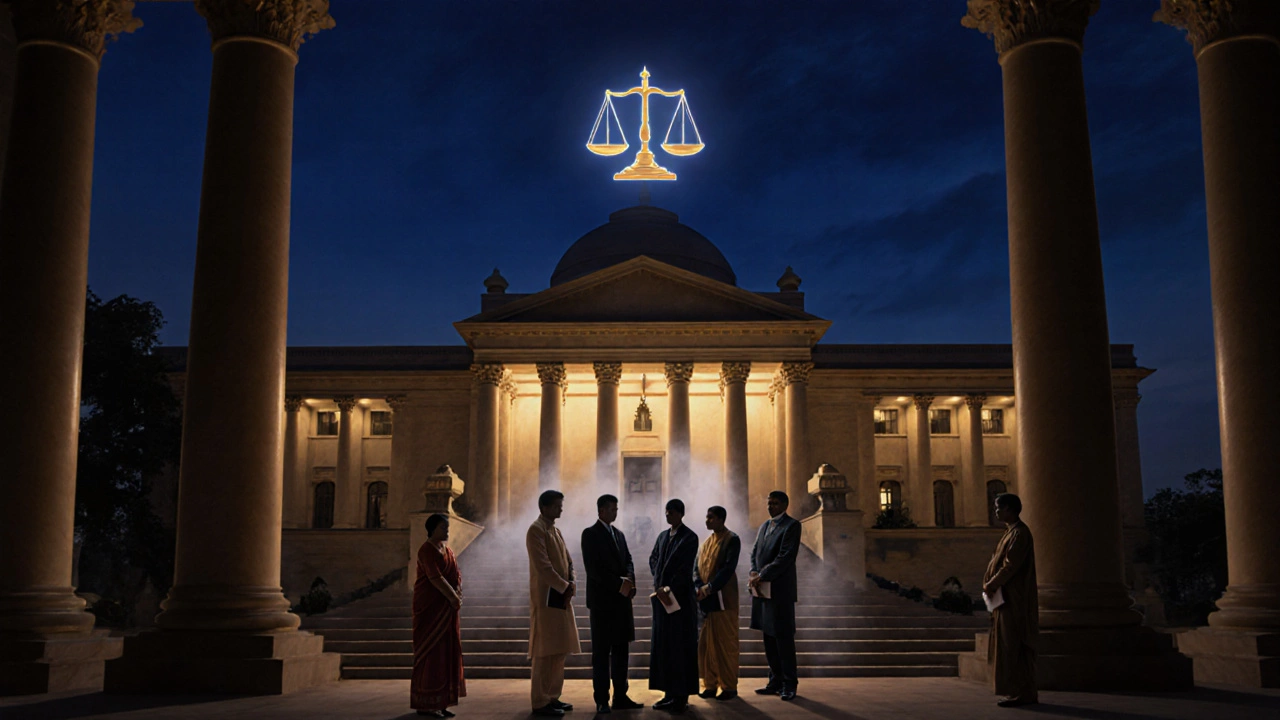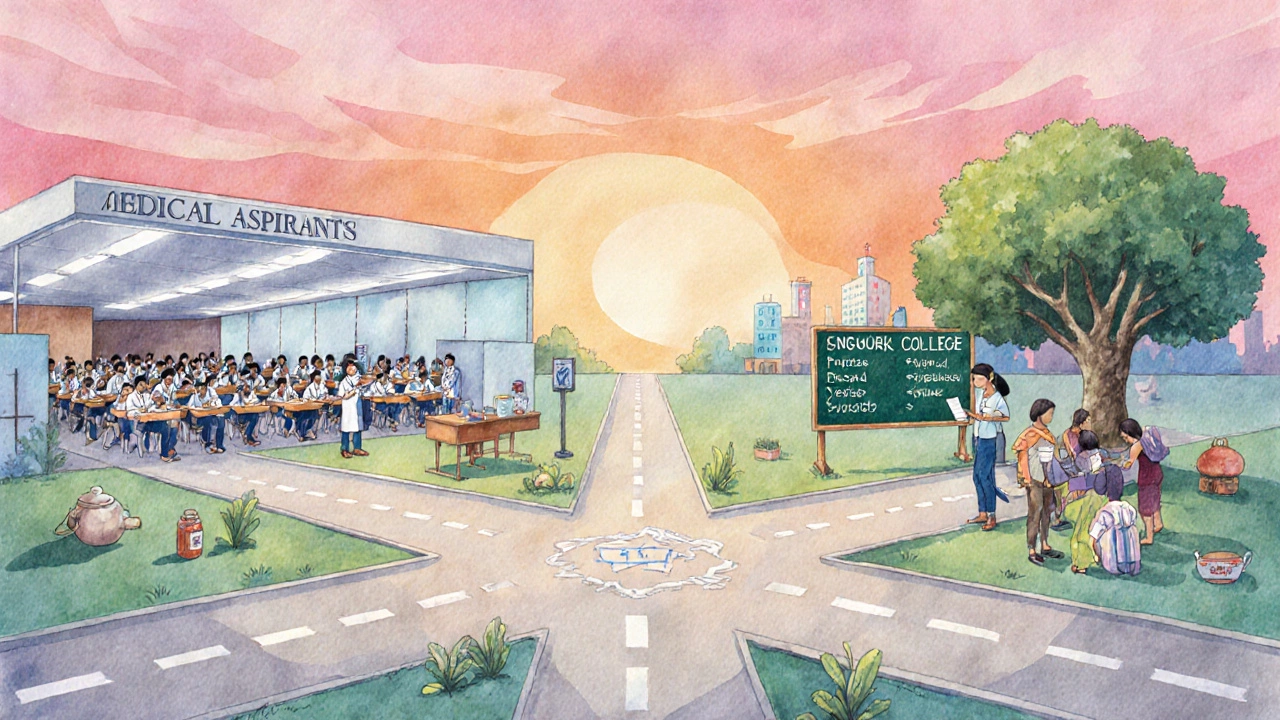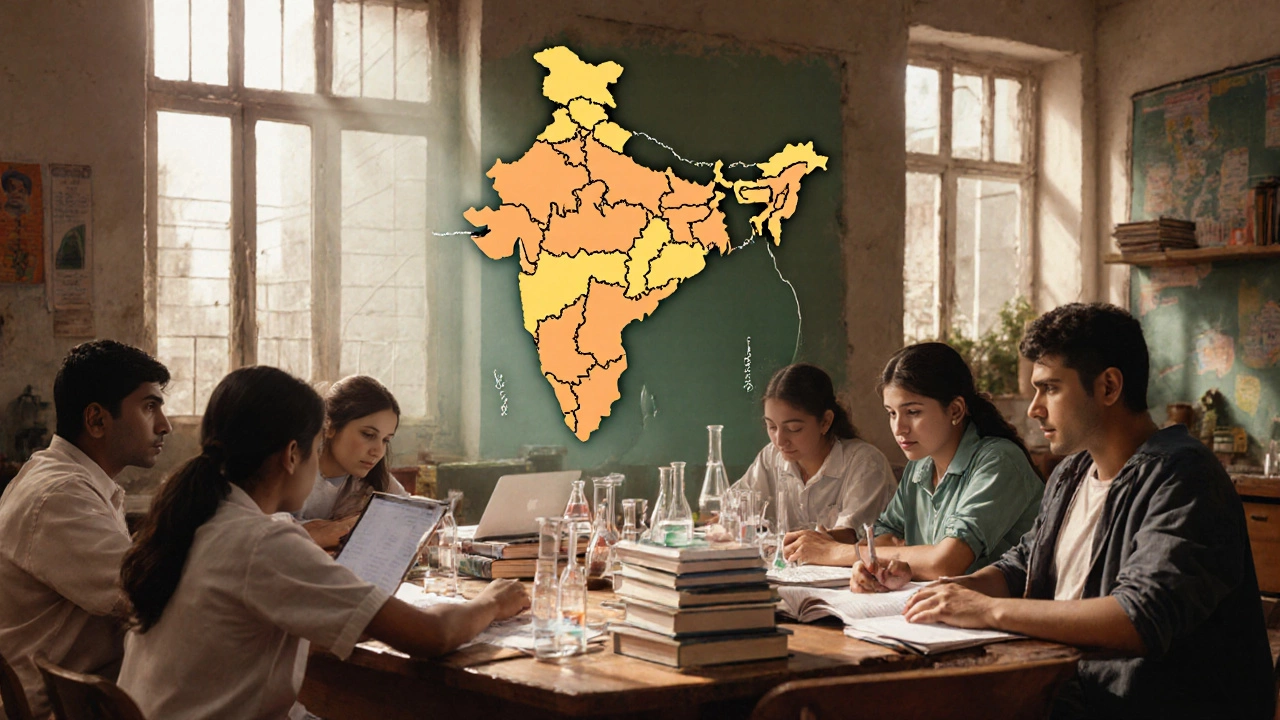Indian States Opposing NEET - Interactive Tracker
This interactive tracker displays the six Indian states currently opposing NEET. Each card contains:
- State name
- Primary reason for opposition
- Status update
Hover over any card to see a subtle lift effect. Click on a card to view detailed reasoning behind that state's stance.
Every year, lakhs of Indian students gear up for the NEET opposition debate, wondering whether they’ll be able to sit for the national medical entrance test. While the Union government pushes for a single‑screen exam, a growing number of state governments push back, citing local autonomy, reservation policies, and the fear of losing regional colleges. This article breaks down which states are actively opposing NEET as of October2025, why they’re doing it, and what it means for aspirants.
What is NEET?
NEET is a national eligibility cum entrance test that serves as the sole gateway for admission to undergraduate medical (MBBS) and dental (BDS) courses across India. Launched in 2013, it replaced a patchwork of state‑level exams and is administered by the National Testing Agency (NTA). The test covers Physics, Chemistry, and Biology (Botany & Zoology) and is held once a year, usually in May.
Why are some states pushing back?
Opposition isn’t a monolith; each state cites a mix of political, social, and educational reasons. The most common arguments include:
- Reservation and quota concerns: States fear that a uniform test undermines state‑reserved seats for socially backward groups.
- Preserving local colleges: Many states run medical colleges that rely on a state‑specific admission pool; a national test could shift seats to students from other regions.
- Curriculum mismatch: State boards often teach biology and chemistry slightly differently, leading to claims that NEET disadvantages their students.
- Political signaling: Opposition parties use the NEET debate to showcase their commitment to regional autonomy.
- Legal challenges: Several states have filed petitions in the Supreme Court of India arguing that the central government overstepped its constitutional authority.

Current list of states opposing NEET (2025)
| State | Primary Reason for Opposition | Date of Formal Protest | Current Status (2025) |
|---|---|---|---|
| Tamil Nadu | Reservation quota protection and curriculum differences | January2023 | Continues to seek a state‑level alternative; legal stay pending |
| Karnataka | Fear of losing seats in state‑run medical colleges | July2023 | Submitted fresh petition; awaiting Supreme Court hearing |
| Uttar Pradesh | Political backlash; claims of central overreach | March2024 | State government has issued a temporary exemption for 2025‑2026 admissions |
| West Bengal | Reservation concerns for SC/ST/OBC categories | November2024 | Supreme Court hearing scheduled for early 2026 |
| Madhya Pradesh | Legal dispute over central data sharing | May2025 | State has issued an administrative order to delay NEET registration for its students |
| Rajasthan | Protecting regional medical college seats | June2025 | Opposition remains symbolic; no formal legal action yet |
Impact on students and colleges
When a state opposes NEET, the ripple effect touches three main groups: aspirants, colleges, and the central admission system.
- Aspirants: Students in opposing states often face uncertainty about whether they need to register for NEET or wait for a state‑run exam that may or may not be announced.
- Colleges: State‑run medical colleges risk losing a chunk of their annual intake if NEET seats replace state‑reserved spots. Some institutions have started offering bridge courses to align their curricula with NEET standards.
- Central system: The NTA has to maintain separate enrollment portals for states that have secured exemptions, increasing administrative overhead.
Data from the Union Ministry of Health and Family Welfare (2024‑2025) shows that in states actively opposing NEET, registration rates dropped by an average of 12% compared to national averages. This translates to roughly 45,000 fewer candidates appearing for the exam from these regions.
Legal and political developments
The battle over NEET isn’t just a policy debate; it’s playing out in courts and legislative chambers. In 2023, the Supreme Court of India upheld the constitutional validity of NEET but granted states the right to seek temporary stays if they can demonstrate “substantial prejudice.” This nuanced ruling gave states like TamilNadu a legal foothold to file interim orders.
More recently, the Union Ministry of Health and Family Welfare announced a revised NEET framework in August2025 that includes a “regional adjustment clause” allowing states to reserve up to 15% of seats for local candidates without altering the overall national merit list. While the clause appeased some opposition, states such as Karnataka argue the percentage is still insufficient.

What can students do?
If you’re a student living in a state that’s actively opposing NEET, here are practical steps to keep your options open:
- Monitor official notifications from your state’s education department and the NTA website. Both portals post updates on enrollment deadlines.
- Prepare for both NEET and any announced state‑level exams. The core syllabus overlaps significantly, so a dual‑track study plan maximizes safety.
- Join local student forums or Telegram groups where peers share real‑time information about registration glitches and legal rulings.
- Consider private coaching centers that offer “NEET‑plus” modules - they usually incorporate state‑specific topics that might appear in a regional exam.
- If you’re unable to sit for NEET due to a state stay, explore alternative pathways like BSc Nursing or allied health courses that have separate entrance criteria.
Remember, the legal landscape can shift quickly. A stay that’s in place today might be lifted by next month, so staying adaptable is key.
Key Takeaways
- Six Indian states (TamilNadu, Karnataka, UttarPradesh, WestBengal, MadhyaPradesh, Rajasthan) are officially opposing NEET as of October2025.
- Primary reasons include reservation protection, preserving state‑run college seats, curriculum differences, and political signaling.
- Legal challenges have reached the Supreme Court, which permits temporary stays but upholds NEET’s constitutional validity.
- Student registration rates in opposing states fell by about 12% in the 2025 cycle.
- Staying informed, preparing for dual pathways, and leveraging peer networks are the best ways to safeguard your medical‑career ambitions.
Frequently Asked Questions
Can I still appear for NEET if my state opposes it?
Yes, you can. Even if a state has filed a petition, the Union government usually keeps the national registration open. However, you must verify whether your state’s education board recognizes NEET scores for admission to state‑run colleges.
What happens if a state gets a court stay on NEET?
A court stay typically means the state can conduct its own entrance exam for that admission year. NEET scores would then be used only for central and private medical colleges within the state.
Do reservation quotas differ between NEET and state exams?
Yes. NEET follows a national reservation policy (15% SC, 7.5% ST, 27% OBC). Many states have higher or additional quotas for local categories, which is why they fear losing seats under a uniform test.
Is there any compensation for students who miss NEET due to state opposition?
Currently, no formal compensation scheme exists. Some private colleges offer bridge courses, and the Union Ministry has promised to release a “special counseling” round for affected candidates.
Will the NEET syllabus change because of state opposition?
The core syllabus remains the same. However, the 2025 revision added a few “regional adjustment” topics to address state‑specific curricular gaps, but these are optional for NEET scoring.
